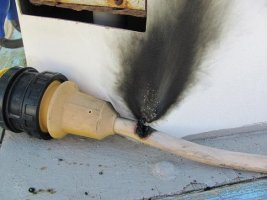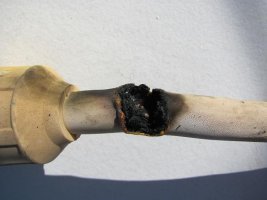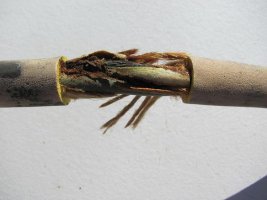mherrcat
Contributing Partner
That's the sound I heard outside my boat at about 9 PM Friday night as the AC power went completely dead. My first thought was, "I hope my fire extinguishers all work..." I grabbed a flashlight and went out to check the shore power box.
My shore power cord had shorted out. Wasn't cut or anything, just old age. The insulation on the individual wires had broken down. I found a lump further down the cord from the short and cut it open to see what it looked like. Here are the pics:



The part that concerned me was the breaker on the dock box did not trip. Wondering why...
My shore power cord had shorted out. Wasn't cut or anything, just old age. The insulation on the individual wires had broken down. I found a lump further down the cord from the short and cut it open to see what it looked like. Here are the pics:



The part that concerned me was the breaker on the dock box did not trip. Wondering why...
